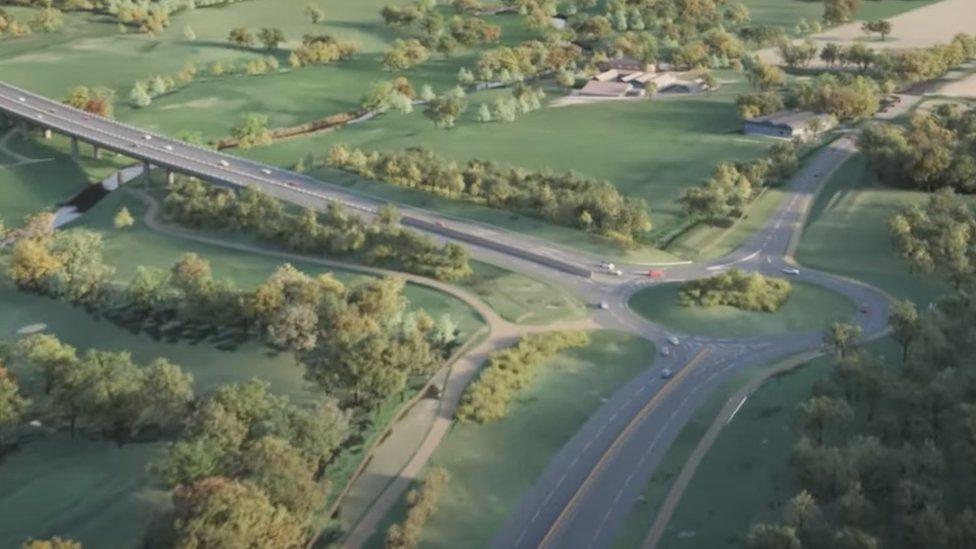Natural England 'too powerful' in Norfolk link road debate - council leader
- Published
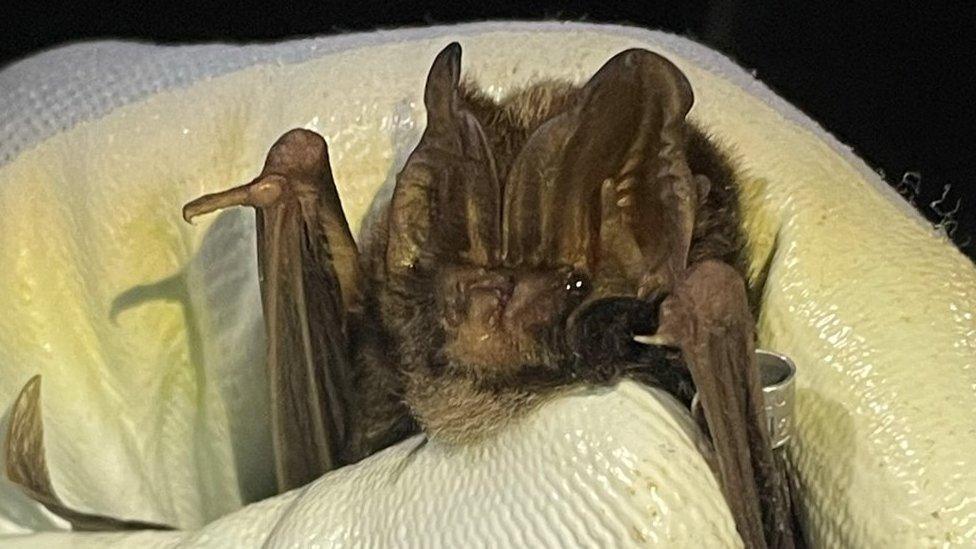
Barbastelle bats have formed a "super colony" in an area proposed for a major new road
An environmental quango, external is "too powerful" and is preventing a key road being built, a council leader said.
Norfolk County Council's Kay Mason Billig said Natural England was blocking the Norwich Western Link scheme by protecting a bat colony.
She claimed it made decisions with "no real facts or evidence".
Natural England said the organisation's job was to help meet ambitious environmental targets set by government and Parliament.
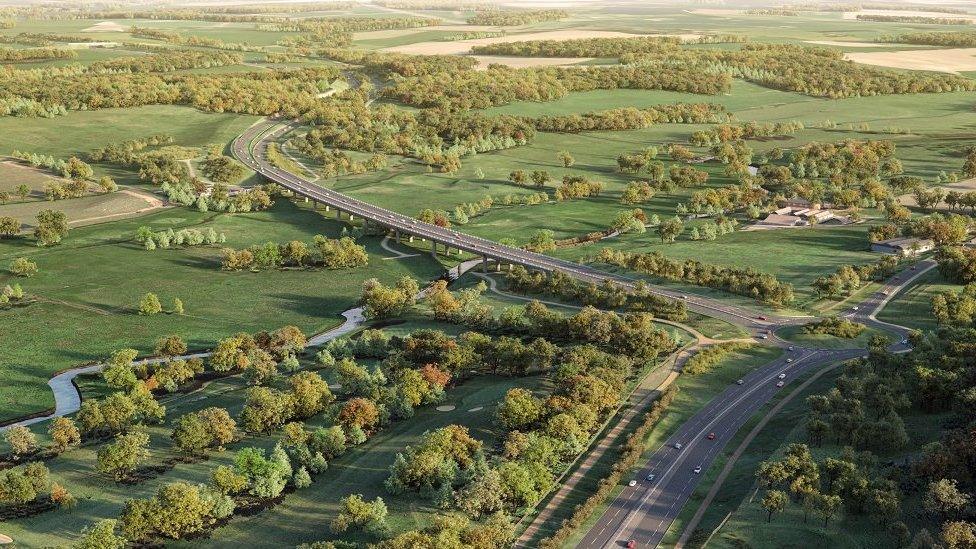
Digitally generated images of the link road, showing a viaduct over the River Wensum, were revealed last year
In March, plans for the final part of the Northern Distributor Road around the north of Norwich, were put in doubt due to a change of rules to protect a "super colony" of endangered barbastelle bats.
The 3.9 miles (6.3km) link road - costing £274m - would connect the Broadland Northway at the A1067 with the A47 at Easton.
Natural England has placed "favourable conservation status" on the bat species, effective from March.
The council said the changes would make it "almost impossible" for the road to be granted a licence.
The county said some 16,000 homes had also been delayed for two years due to Natural England's concerns about pollution.
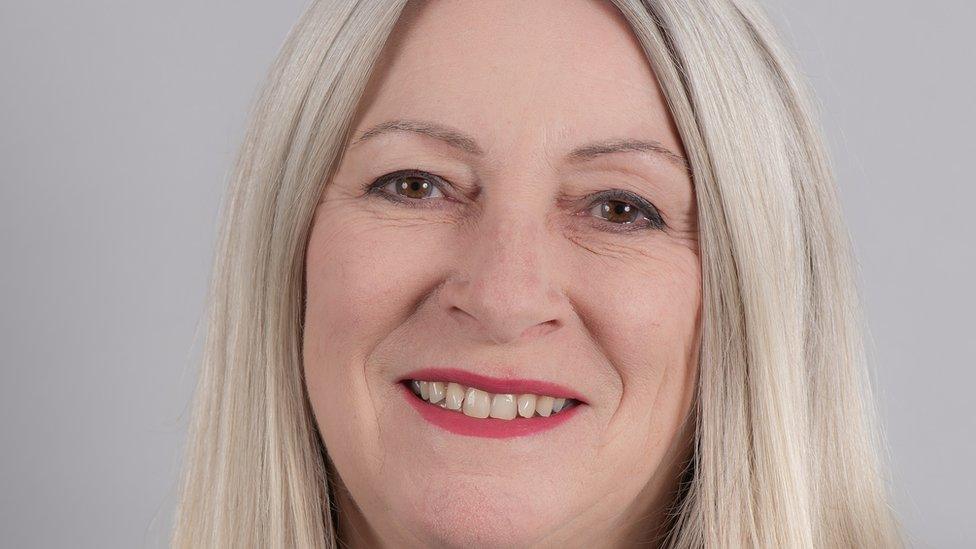
Council leader Kay Mason Billig believes Natural England is too powerful
Ms Mason Billig acknowledged Natural England had "a very important job to do", but its decisions had "consequences for development across the whole of the south of England".
"But what I don't understand is how they can make decisions like this with no real facts or evidence to back it up," she said.
"There is no system of appeal with Natural England. They are not elected. They don't go to the electorate and ask 'are we doing the right thing?'.
"They make a decision and that's it - you're dead in the water. I think they must be too powerful in their current form."
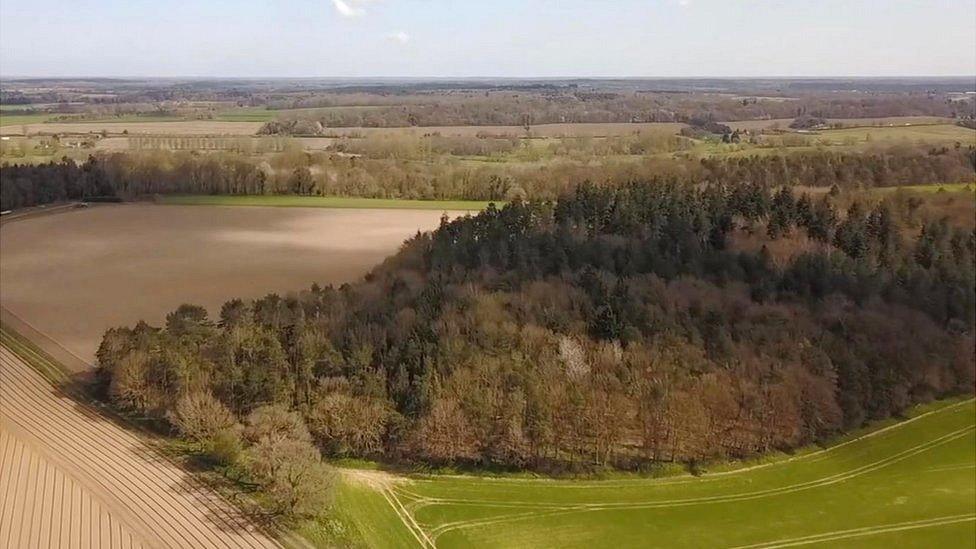
Natural England says the countryside has been in crisis
Jamie Osborn, a Green county councillor, said Natural England was "set up as an independent body".
"The evidence it provides and the guidance it produces is based on research that is not subject to the whims of political leaders," he said.
"The role Natural England play is very, very important, so simply to [criticise its] decisions or say they are against the will of the people if you don't like what they are doing is to miss the point."
But he did think it needed more "accountability" and oversight.
'Turning around decline'
Natural England, external says on its website that it follows all "normal assessment procedures" relying on "sound science".
Adam Tunningley, director of operations at Natural England, said: "Turning around the long term decline in nature is difficult and complicated but it is also crucial and necessary if we are going to meet this country's environmental targets.
"Government has set up some ambitious targets and Natural England's work is to be at the centre of delivering those.
"We are accountable to the secretary of state and to Parliament. The advice we provide gives guidance to ministers."
He said that "across the country nature is in crisis and this is a problem that affects everyone".
Steve Morphew, leader of the Labour group on the council, said: "The leader of the county council is blaming Natural England as the scapegoat for the problems they have got with the road.
"It's not just the bats - it's the economic, environmental and the financial elements of it that are going wrong. Natural England are experts. There is scientific basis for the things they do."
Politics East is broadcast on Sunday, 14 April at 10:00 BST on BBC One and is available after broadcast on the BBC iPlayer.

Follow East of England news on Facebook, external, Instagram, external and Twitter, external. Got a story? Email eastofenglandnews@bbc.co.uk, external or WhatsApp us on 0800 169 1830
- Published28 March 2024
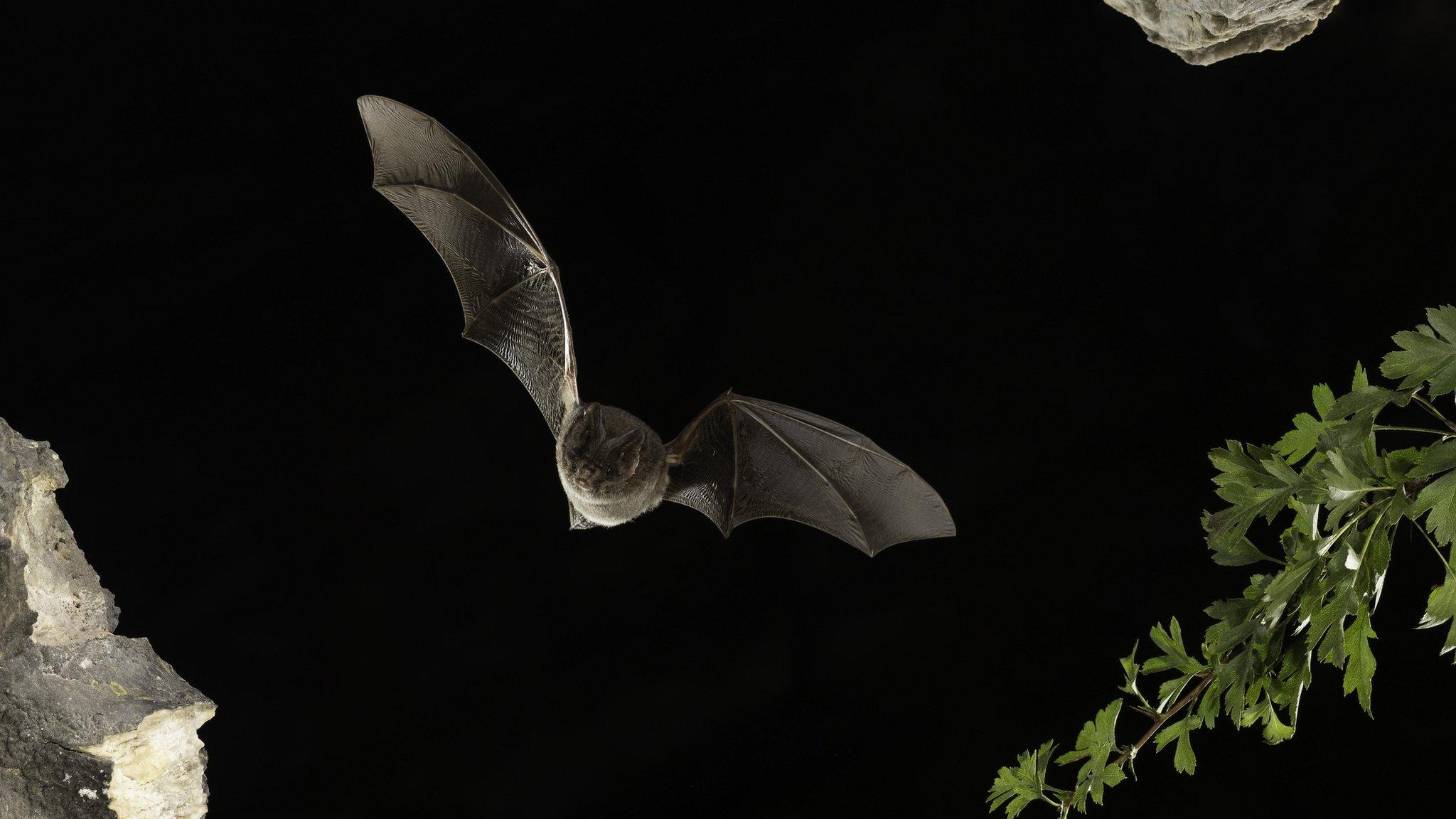
- Published26 March 2024
